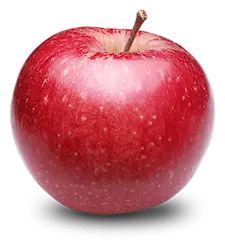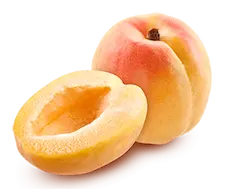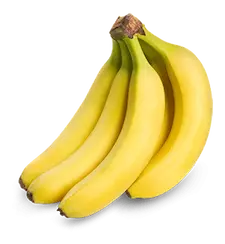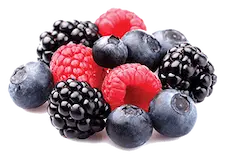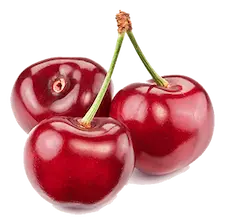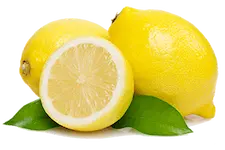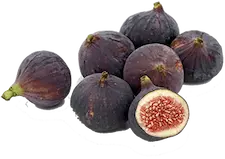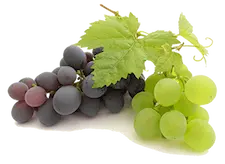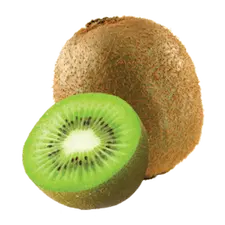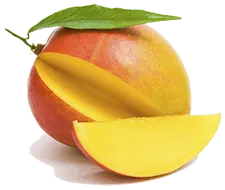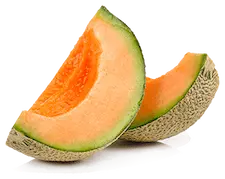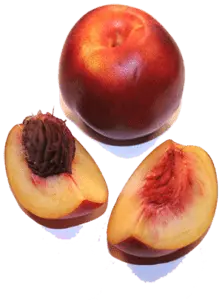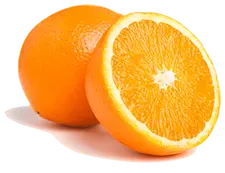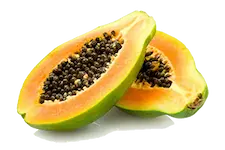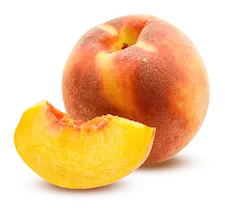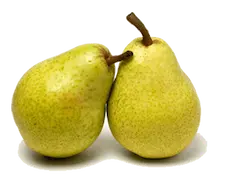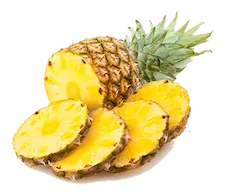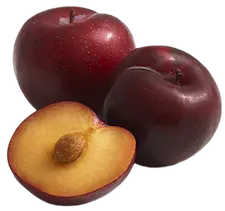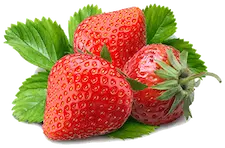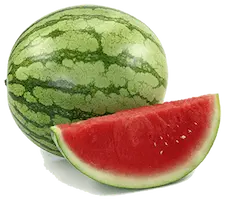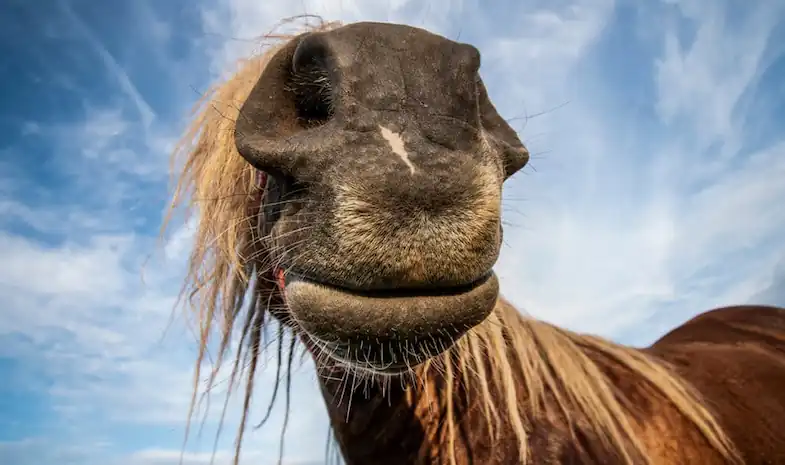We all enjoy spoiling our horses and one of the ways we choose to do this (and our horse’s favorite way) is by feeding them treats but giving them endless mints, even if they’re tailor-made for horses, isn’t good for their teeth or their waistline. This is one of the reasons why we feed them fruits instead, but it can be difficult to know which fruits are safe and which aren’t which is why I thought I’d put this guide together. I’ve had many horses over the years and while there have been one or two fussy eaters they’ve generally all liked the fruits listed below.
What fruits can horses safely eat? Horses can eat most fruits, especially apples, pears, and even melons but you should always remove any stones, pips, or seeds. You should also avoid feeding your horse tomatoes and avocados as they’re both highly toxic.
Apples
Can horses eat apples? Apples are synonymous with horses and there’s no reason at all why you shouldn’t feed them to your horse.
Nutrients (per 100g):
- Sugar: 10g
- Calories: 52cal
- Dietary fiber: 2g
Let’s be honest we all know how much horses love apples, ask any non-horsey person what horses like to eat and chances are they’ll mention apples (probably as well as mints) but as well as being tasty and juicy they’re also extremely healthy.
Apples are full of vitamins and minerals that can have a range of benefits such as reducing the risk of obesity and heart problems. They also contain dietary fiber which can help the horse to digest, not just the apple but all other foods too.
Apricots
Can horses eat apricots? As long as you remove the stone beforehand apricots are perfectly healthy for horses and actually make a very good choice.
Nutrients (per 100g):
- Sugar: 9g
- Calories: 48cal
- Dietary fiber: 2g
You might not have thought about feeding apricots to your horse but they’ll absolutely love them, I’ve only ever had one horse that didn’t like them but he was such a fussy eater anyway. Apricots are packed full of goodness that will do your horse the world of good, they’re high in vitamins A, C, and E as well as antioxidants that can help to protect your horse from many illnesses and bacterial diseases.
Like apples, apricots also contain dietary fiber that will help to keep your horse’s digestive system in tiptop condition, from start to finish. The only thing you need to remember about apricots though is that they have a stone that must be removed beforehand, if not it could choke your horse.
Bananas
Can horses eat bananas? Not only can horses eat the whole banana (including the peel) it actually has a number of health benefits too, including preventing ulcers and even repairing cell damage.
Nutrients (per 100g):
- Sugar: 12g
- Calories: 89cal
- Dietary fiber: 2g
There’s been a lot of talk recently about the benefits that bananas can have on horses, they’re great for giving your horse a boost of energy (okay I’ll admit most horses have enough but it can be helpful before a competition), will help treat and even prevent gastric issues such as ulcers and can even repair cell and tissue damage.
On top of all of those benefits, they are darn blumin’ tasty too and there’ll be no waste either because your horse can even eat the peel.
Berries
Can horses eat berries? It doesn’t matter what type of berry you give a horse, they can eat them all! And what’s more, they’re packed with goodness.
Nutrients (per 100g):
- Sugar: 4g – 14g
- Calories: 27cal – 57cal
- Dietary fiber: 1g – 5g
It doesn’t matter if you’re feeding your horse blueberries, blackberries, or raspberries they’re all super good for him as well as being delicious. They can help to fight inflammation, improve your horse’s blood sugar and insulin response as well as aid his digestion.
In the wild horses instinctively know what they need and what they don’t which is why they’ll often ‘snack’ on berries that grow wild. They’ll do this to help meet their nutritional needs, after all, many berries contain vitamins A, B6, C, and D, manganese, copper, and iron amongst many others.
Cherries
Can horses eat cherries? If you remove the pips first there’s no reason whatsoever why you can’t feed cherries to your horse, as a bonus they’re bursting with vitamin C.
Nutrients (per 100g):
- Sugar: 12g
- Calories: 63cal
- Dietary fiber: 2g
Just because cherries are small and have large pips it doesn’t mean they can’t be fed to your horse, just make sure you remove the pips beforehand. While most people are aware that, like most fruits, they contain vitamin C, not so many people know that they also contain a lot of calcium which can help to keep your horse’s bones and hooves strong.
Cherries can be fed to your horse at any time but doing so after exercise can really aid their recovery, especially if they’ve been working hard.
Citrus fruits
Can horses eat citrus fruits? Horses have very different taste buds to us and actually love the sour taste of lemons and limes. Some horses also like to eat the peel as well.
Nutrients (per 100g):
- Sugar: 1.7g – 2g
- Calories: 20cal – 29cal
- Dietary fiber: 2g – 4g
We tend to think that because lemons and limes are very sour (and bitter if you include the peel) our horses won’t like them either but this couldn’t be further from the truth. Horses have very different taste buds to us and many like the sour taste they get from citrus fruits.
While your horse may not like the taste of the peel it’s perfectly safe for them to eat, as long as you clean it thoroughly to remove any pesticides that might be left on it.
Figs
Can horses eat figs? Figs are a great alternative to feeding your horse apples, they’re juicy, sweet, and have a good helping of fiber too.
Nutrients (per 100g):
- Sugar: 16g
- Calories: 74cal
- Dietary fiber: 3g
Most of us have had fig rolls at some point or another without realizing what figs really look like, but these sweet-tasting fruits are excellent for our horses. They have a high sugar content (albeit fructose instead of other sugars) so can be a great alternative to sugar cubes. On top of that, they’re a rich source of vitamins and minerals such as vitamins A and K, potassium, calcium, and iron which means they’ll keep your horse healthy.
Unlike a lot of other fruits, they can be fed to horses even when they’re dried, although you should avoid giving them to horses with Equine Cushing’s Disease or any other condition that causes insulin resistance.
Grapes
Can horses eat grapes? A member of the berry family, grapes are ideal bite-sized treats for horses that can also be used as part of your training regime.
Nutrients (per 100g):
- Sugar: 15g
- Calories: 67cal – 69cal
- Dietary fiber: 0g – 1g
I know that grapes are technically berries but their benefits are so good that I thought it was better to include them separately. Recent research carried out by supplement companies has found that they’re packed full of prebiotics and probiotics which means that grapes have anti-inflammatory, antibacterial, antioxidant, and even anti-cancer properties.
It doesn’t matter if you feed red or green (or white) grapes to your horse, or even if they contain seeds, in terms of goodness they’re all the same, the only real difference will come from your horse’s tastes.
Kiwi
Can horses eat kiwi? Not only are kiwis perfectly suitable for horses to eat but they’re so good they should be included in their daily diet! Okay, that may be going a bit far, but seriously they’re super good for horses, especially those with digestive issues such as ulcers.
Nutrients (per 100g):
- Sugar: 9g
- Calories: 61cal
- Dietary fiber: 3g
Don’t let their rather small size fool you, the kiwi is packed full of goodness that your horse will not only enjoy but benefit from greatly. They have more vitamin C than lemons, just as much potassium as bananas, and enough omega 3 to keep your horse healthy. Kiwis also contain a unique protein known as Actinidin that is great for keeping your horse’s digestive system working properly.
Sometimes referred to as a Chinese gooseberry, you can feel the whole of the fruit to your horse, including the peel – just make sure you wash it thoroughly beforehand to get rid of any pesticides and insecticides.
Mango
Can horses eat mango? Mangos are perfectly okay for horses to eat but they are relatively high in sugar so should only be fed as an occasional treat.
Nutrients (per 100g):
- Sugar: 13g
- Calories: 59cal
- Dietary fiber: 1g
For their size (and the amount of flesh in a single fruit) mangos are quite high in sugar but that said they can still make a great occasional treat for horses. They can be fed fresh or if the weather’s hot you can freeze the flesh and feed them to your horse like that.
Before feeding mangos to your horse though you should remove the peel and the stone because they both contain toxins (although the jury’s still out on whether or not those toxins will do your horse any harm).
Melon
Can horses eat melon? As long as you remove the seeds from the melons then you can safely feed them to your horse. They’re especially good in the summer for helping to cool your horse down.
Nutrients (per 100g):
- Sugar: 8g
- Calories: 34cal – 36cal
- Dietary fiber: 0g – 1g
Whether it’s honeydew, cantaloupe, honey globe or snap, all melons are perfectly okay for horses to eat, they generally have a low sugar content and a high water content which means that your horse can eat more of them than he can some other fruits. As long as you clean it properly first you can also feed the rind to your horse, although I wouldn’t recommend feeding the seeds.
The exact amount varies between different melons but they all have a plethora of vitamins and minerals that will help to keep your horse healthy. From his coat to his bones, melons can benefit every part of your horse.
Nectarines
Can horses eat nectarines? Like other pitted fruits, horses can safely eat them as long as you remove the stone first. What you might not know though is that nectarines are also higher in fiber than most other fruits.
Nutrients (per 100g):
- Sugar: 8g
- Calories: 44cal
- Dietary fiber: 2g
Nectarines are low in sugar but, compared to some other fruits, high in dietary fiber which makes them a healthy treat or snack for horses. They get their yellowy red color from beta-carotene which is a mineral that the body needs in order to create vitamin A, which it then uses to boost the effectiveness of the immune system as well as to keep a horse’s eyes and skin healthy.
Before feeding nectarines though make sure you remove the large stone in the center, not only is it a choking hazard but it also contains cyanide which could, in large amounts cause respiratory failure.
Oranges
Can horses eat oranges? Not all horses will like the taste of oranges but they’re perfectly okay for them to eat. What’s more, they can also help to boost your horse’s energy levels.
Nutrients (per 100g):
- Sugar: 8g
- Calories: 46cal
- Dietary fiber: 1g
Not everybody agrees that oranges are safe to feed to horses but I’ve never had any problems (or known anybody else that has) feeding small amounts of oranges to healthy horses now and then. They have the same amount of sugar as many melons but have fewer calories and a lot more vitamin C.
A recent study carried out by a supplement company found that feeding orange peel to horses after exercise reduced their fatigue so you could always use a segment of orange as a healthier alternative when training your horse.
Papaya
Can horses eat papaya? An unusual choice of treat for horses, papayas are actually a very healthy choice that can benefit your horse in so many ways.
Nutrients (per 100g):
- Sugar: 5g
- Calories: 38cal
- Dietary fiber: 1g
Be honest, I bet you hadn’t thought about feeding papayas to your horse? Yet they have an amazing array of benefits, they can ease ulcer pain (as well as help to treat ulcers), reduce stress, and even keep your horse’s cardiovascular system in good working order.
Papayas can also be great if your horse is suffering from constipation because they have very slight laxative properties.
Peaches
Can horses eat peaches? A member of the prunus Persia family peaches, like nectarines, make a healthy treat for horses. An added bonus of peaches though is that they’re lower in sugar and calories when compared to nectarines.
Nutrients (per 100g):
- Sugar: 7g
- Calories: 38cal
- Dietary fiber: 1.5g
Many people think that peaches are simply nectarines with ‘furry’ skin but this isn’t the case, yes they’re very similar genetically but peaches contain less sugar and calories than nectarines. That said though they do have the same health benefits in that they both contain a lot of beta-carotene.
As well as having high levels of vitamins A and C, peaches are also a great source of potassium and omega 3, although they don’t have as much potassium as bananas.
Pears
Can horses eat pears? Pears are great for horses to eat, they make a healthier alternative to apples and can also help to aid a horse’s digestion.
Nutrients (per 100g):
- Sugar: 9g
- Calories: 56cal
- Dietary fiber: 3g
We all know about feeding apples to horses but many of us don’t even consider pears, yet they’re actually slightly healthier. They do contain a few more calories than apples but have less sugar and 50% more dietary fiber. As with apples though you should remove the stalk, seeds, and any leaves before cutting them in half and feeding them to your horse.
Personally I hardly ever feed my horses apples but do feed them a lot of pears instead, my personal favorite is to blend them up and then mix them with their feed.
Pineapple
Can horses eat pineapple? The flesh of the pineapple is more than okay for horses to eat, it’s tasty and can help to give your horse’s overall health a boost.
Nutrients (per 100g):
- Sugar: 9g
- Calories: 42cal
- Dietary fiber: 1g
If you’re going by appearance alone it’s easy to see why many people think that horses can’t eat pineapple but once you get past the spikey-looking exterior (and remove the core) the fruit its self makes a delicious sweet treat for horses. Not only are pineapples super tasty they also contain a lot of bromelain which will help your horse to digest his food.
While they don’t contain as much as oranges (and nowhere near the amount of kiwi), pineapples still have their fair share of vitamin C.
Plums
Can horses eat plums? Like peaches and nectarines, plums are perfectly safe for horses to eat and make a great summer treat. They can even be made into refreshing frozen treats too.
Nutrients (per 100g):
- Sugar: 9g
- Calories: 45cal
- Dietary fiber: 1g
If you have plum trees overhanging your pasture you’ll notice how your horse devours them as soon as he can, stones and all, I know mine certainly do! I like to think that it’s because they know that plums are a source of vitamin C but I think it’s because they just love the sweet taste of them.
Often classed as superfoods, plums are known to help reduce anxiety and stress but also to relieve constipation and aid digestion – after all plums are just fresh prunes and we all know what they’re good for.
Strawberries
Can horses eat strawberries? Just like other berries, strawberries are great for horses to eat, they’re low in sugar and calories too.
Nutrients (per 100g):
- Sugar: 5g
- Calories: 27cal
- Dietary fiber: 1g
Like other berries, strawberries make fantastic healthy treats for horses. They’re packed with nutrients that help boost your horse’s immune system as well as an assortment of vitamins and minerals that will keep your horse healthy. They’re also low in sodium and are virtually fat-free.
You might not realize it but strawberries have a lot of water too so can also help to hydrate your horse, especially when the weather’s hot.
Watermelon
Can horses eat watermelon? Most horses love watermelons, and with good reason too. You can even feed the rind to them as well, just make sure you wash it first.
Nutrients (per 100g):
- Sugar: 5g
- Calories: 27cal
- Dietary fiber: 0g
Watermelons are great for helping your horse to keep cool when the weather gets really hot but they do also have a wide range of other benefits too. They’re virtually fat-free and have absolutely no cholesterol so won’t do your horse any harm, but on top of that, they also contain calcium which will help to keep your horse’s bones, teeth, and hooves strong and healthy.
You don’t need to throw anything away either because your horse can even eat the rind – just make sure you’ve washed it thoroughly beforehand to remove any pesticides.
IMPORTANT: When feeding any of the fruits above you should only feed them raw and natural or is foods that have been prepared especially for horses. Never feed them dried fruits or human food that contain dried or processed fruits. You should also remove any stones, seeds, or pips from the fruit before feeding it to your horse. As well as proving a choking hazard they often contain toxins that can, if consumed in large amounts, be harmful to your horse.
How should you introduce a new fruit to your horse?
We all know that horses have delicate digestive systems that can be easily upset if you change anything too quickly which is why it’s always advisable to introduce any new food, regardless of whether it’s a treat or not, slowly. It’s also a good idea to introduce one new food item at a time so that, if your horse has an allergy, you know what caused it.
If your horse is a fussy eater and turns their nose up at anything new then you can try feeding them a little bit with their regular meal. This will get them used to the smell and taste so that when you feed it on its own they’ll be less likely to refuse it. If your horse really doesn’t like it though don’t try and force them to eat it.
What’s the best way to feed fruit to your horse?
There are lots of different ways to feed fruit to your horse with the most obvious way being to cut the fruit into smaller pieces and then feed it straight to your horse but if you want to make treats a bit more ‘interesting’ for your horse then here are a few different ways I like to feed them to my horses.
- Mix with their feed: I know this won’t seem like so much of a treat to your horse but it’s a great way to spoil them without encouraging bad habits. Your horse will just think it’s part of his food but will still get the goodness from the fruit.
- Make cookies: I like to occasionally make cookies using various fruits, they’re quick to make and can be frozen so last a long time. Simply mix the fruit with a cup of oats and flour and a quarter of a cup of molasses then separate into smaller balls and bake in the oven (350°F/180°C/Gas Mark 4) for about 25 minutes.
- Ice lollies: You can chop some fruit up, mix them with water and then either pour them into an ice cube mold or, if you have a big enough freezer, freeze a block and feed to your horse. This will keep them cool but will also keep them occupied for a while.
- Hide the fruit: If you have an equine-feeder (available on Amazon) you can put chopped up pieces of fruit inside and allow your horse to find them for himself. This will keep him stimulated but will also encourage his natural foraging instincts.
- Use a syringe: Once you’ve blended the fruit into a puree you can put it into old dewormer syringes and then squirt it directly into your horse’s mouth, as you would do with dewormer. This will stop your horse from associating the syringes with dewormer paste, making that task easier next time too!
Can feeding too much fruit to my horse harm him?
Feeding too much of any food to your horse can be bad (even something that’s healthy) and fruit is no exception. We presume that because it’s a natural food that hasn’t been processed it’s okay for your horse to eat as much as he wants but this isn’t the case. The sugar levels can range from as little as 2g per 100g to just under 30g and as you can imagine all of this can have a damaging effect on your horse’s teeth, as well as on his insulin levels.
That’s not to say you shouldn’t be feeding your horse treats, it just means you should always feed them in moderation. Don’t give your horse a whole bunch of bananas at once, instead feed half a banana every few days.
What fruits should you avoid feeding to horses?
There’s a popular misconception that horses can eat all fruits but, while they can eat the vast majority, there are a few that you should avoid feeding to your horse at all costs.
- Avocado is one of the most deadly fruits to horses, every single part of it is toxic, even the tree.
- Tomatoes contain atropine which is known to cause colic and other digestive issues. It’s also from the same family as the deadly nightshade.
- Unpitted fruits can not only be a choking hazard, but the stones or seeds often contain toxins such as arsenic and cyanide that can be harmful.
For a more definitive list of all foods that shouldn’t be fed to horses, check this article out.
Does sugar make fruits unhealthy?
Yes, some fruits are high in sugar but it’s a natural form of sugar known as fructose which is healthier for both you and your horse. This is one of the reasons why it’s such a good alternative to some other treats, although I would add that if your horse is insulin resistant you should still follow your veterinarian’s advice.
On top of the fructose, fruit is relatively low in calories which makes it ideal for horses on a calorie-controlled diet. I know I’ve covered the sugar, dietary fiber, and calorie levels of the fruits above but I thought it would be helpful to put that together in a quick reference table.
| Fruit (100 grams) | Sugar (g) | Calories (cal) | Dietary fiber (g) |
| Apple | 10 | 52 | 2 |
| Apricot | 9 | 48 | 2 |
| Banana | 12 | 89 | 2 |
| Blackberry | 4.9 | 43 | 5 |
| Blueberry | 14 | 57 | 2 |
| Cantaloupe | 8 | 34 | 1 |
| Cherry (pitted) | 12 | 63 | 2 |
| Figs | 16 | 74 | 3 |
| Grapes (red/green) | 15 | 69 / 67 | 0 / 1 |
| Honeydew | 8 | 36 | 0 |
| Kiwi | 9 | 61 | 3 |
| Lemon | 2 | 20 | 4 |
| Lime | 1.7 | 29 | 2 |
| Mango | 13 | 59 | |
| Nectarine | 8 | 44 | 2 |
| Orange | 8 | 46 | 2 |
| Papaya | 5 | 38 | 1 |
| Peach | 7 | 38 | 1.5 |
| Pear | 9 | 56 | 3 |
| Pineapple | 9 | 42 | 1 |
| Plum | 9 | 45 | 1 |
| Raspberry | 4 | 31 | 2 |
| Strawberry | 5 | 27 | 1 |
| Watermelon | 5 | 27 | 0 |
Further reading
- Dos and Don’ts of feeding treats
- Common types of horse feed
- Feeding easy keepers
- Surprising foods you should be feeding
- The amazing benefits of coconut oil
- Do horses really need supplements?
- Healthy homemade treats for horses
- 20 foods you shouldn’t feed horses
I hope you found this article helpful. If you did I’d be grateful if you could share it please as it would really help me.
Recommended products
Over the years I have tried hundreds of different horsey products, from various blankets and halters to different treats. Some I’ve loved, others I’ve hated but I thought I’d share with you my top all-time favorite products, the ones I never leave the yard without. I’ve included links to the products (which are in no particular order) that I really think are great.
- Horse Knots by Reference Ready – If you’re like me and enjoy pocket reference guides then you’ll love this knot tying guide. These handy cards can easily fit in your pocket or attach to the saddle for quick reference. They’re waterproof, durable and are color coded to make them easy to follow.
- Mane ’n Tail Detangler – Even if you never show your horse you’ll need to detangle his tail from time to time (and possibly his mane too) which is always a challenging chore! I’ve found that if I run a little bit of detangler through my horse’s tails every few days it stops them from getting matted up and makes combing them easy, even if they’re coated in mud. I don’t know if I should admit to this or not but it also works wonders on my hair.
- TAKEKIT Pro clippers – Over the years I’ve tried a lot of different clippers and while some were obviously better than others I found these to be by far the best. They are heavier than a lot of other clippers but for me, that’s a good thing, it makes them feel more sturdy and hardwearing. On top of that they have a range of speeds so are just as good for clipping your horse’s back as they are his face. I also like the fact that they come in a handy carry case but that’s not for everybody. The company that makes them is super good and incredibly helpful too, a real bonus these days. The only thing I wasn’t keen on was the fact that it doesn’t come with any oil, but that’s not a major problem as it’s not difficult to buy lubricant.
- Shire’s ball feeder – There are so many boredom buster toys out there but I like to use these every day, regardless of whether or not my horses are bored. I find that it helps to encourage my horses to problem solve by rewarding them with treats (or pieces of fruit) but it also mimics their natural grazing behavior which helps to keep them calm and de-stressed.
- Horse safe mirror – This is a strange one that many people are surprised about but I like to put horse safe mirrors in the trailers as well as in the quarantine stalls. It helps to prevent the feeling of isolation by giving the impression of other horses being around. Being herd animals horses can get extremely stressed when they feel that they’re on their own but with these stick-on mirrors, they believe that at least one other horse is with them.
- Rectal thermometer – I know this isn’t glamourous at all but it’s vital for your horse’s well-being to be able to check their temperature and a rectal thermometer is the easiest way of doing this which is why I’ve added it to the list.
Shopping lists
I’ve also put together a few shopping lists of essential items that I’ve found helpful over the years. I’ve broken the lists down into different categories rather than put everything in one massive list 😉

